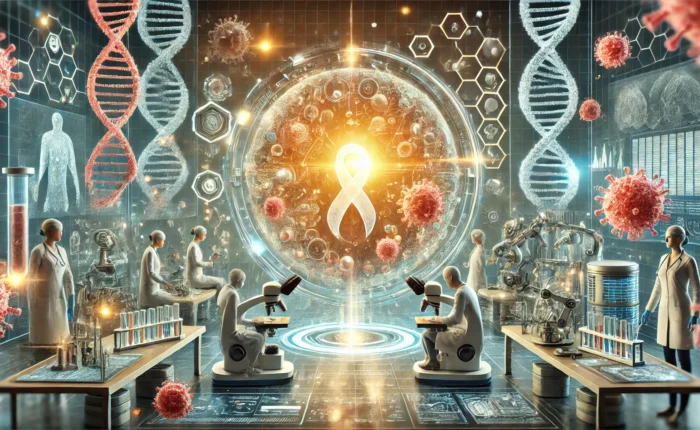Latest Global Efforts in Finding a Cure for Cancer

Cancer remains one of the most challenging diseases to cure, claiming millions of lives every year. However, significant progress is being made worldwide, driven by cutting-edge research, advanced technology, and global collaboration. This blog explores the latest global efforts in finding a cure for cancer, highlighting breakthroughs and initiatives that offer hope for patients and their families.
1. Advancements in Immunotherapy
Immunotherapy has emerged as a game-changer in cancer treatment. By leveraging the body’s immune system to attack cancer cells, therapies like immune checkpoint inhibitors and CAR-T cell therapy have shown remarkable success in treating certain types of cancer. Recent advancements include:
- Personalized Immunotherapy: Tailoring treatments to an individual’s unique genetic profile.
- Bispecific Antibodies: Engineered molecules that help T-cells target and destroy cancer cells more effectively.
- Tumor-Infiltrating Lymphocytes (TILs): Harvesting and amplifying a patient’s immune cells to combat tumors.
2. Breakthroughs in Early Detection
Early detection significantly improves the chances of successful treatment. Researchers are developing innovative methods to identify cancer at its earliest stages:
- Liquid Biopsies: Non-invasive tests that detect cancer biomarkers in blood samples.
- AI-Powered Imaging: Machine learning algorithms that analyze medical scans for early signs of cancer.
- Wearable Technology: Devices capable of monitoring physiological changes linked to cancer development.
3. Global Collaboration and Data Sharing
The fight against cancer has become a collaborative global effort. Initiatives like the Global Cancer Observatory (GCO) and Cancer Moonshot are fostering international cooperation:
- Cancer Moonshot Initiative: Spearheaded by the United States, this program aims to accelerate cancer research and improve access to treatments.
- ICGC-ARGO Project: The International Cancer Genome Consortium’s initiative to analyze genomic data from diverse populations to uncover genetic drivers of cancer.
- WHO’s Global Strategy: The World Health Organization’s focus on equitable cancer care and prevention, particularly in low-income countries.
4. Exploring Precision Medicine
Precision medicine involves tailoring treatments based on a patient’s unique genetic makeup and tumor characteristics. Recent efforts include:
- CRISPR Gene Editing: Editing genes to correct mutations that cause cancer or enhance the effectiveness of treatments.
- Targeted Therapies: Drugs designed to target specific molecules involved in cancer growth, such as tyrosine kinase inhibitors.
- Organoid Models: Lab-grown mini-tumors that allow researchers to test therapies on patient-specific cancer cells.
5. The Role of Artificial Intelligence
AI is revolutionizing cancer research and treatment by:
- Drug Discovery: Accelerating the identification of potential anti-cancer compounds.
- Predictive Analytics: Forecasting patient outcomes to optimize treatment plans.
- Radiomics: Enhancing the precision of radiation therapy by analyzing imaging data.
6. Innovations in Vaccines
Cancer vaccines are another promising avenue. While vaccines like HPV and Hepatitis B prevent cancers caused by viruses, researchers are developing therapeutic vaccines to treat existing cancers. Examples include:
- Neoantigen Vaccines: Custom-made vaccines targeting specific mutations in a patient’s tumor.
- mRNA Vaccines: Leveraging the same technology used in COVID-19 vaccines to stimulate anti-cancer immunity.
7. Addressing Health Disparities
Efforts are being made to ensure equitable access to cancer care and treatment globally. Organizations are working to:
- Reduce the cost of life-saving drugs.
- Improve infrastructure for cancer care in underprivileged regions.
- Raise awareness about cancer prevention and early detection.
